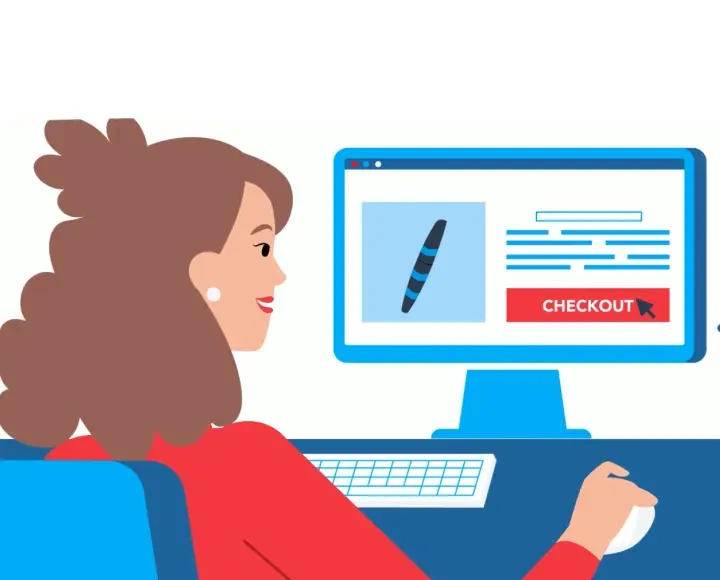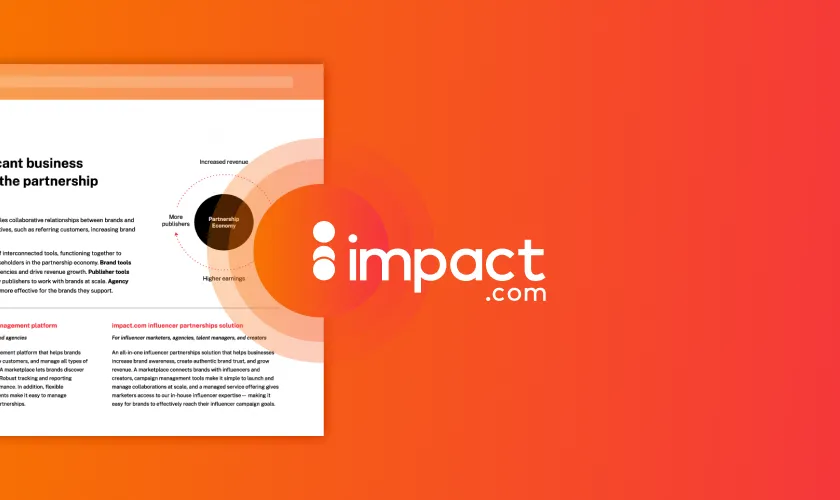Latest blogs
View allDiscover expert insights, actionable strategies, and success stories that can help you optimize your partnerships, drive growth, and achieve better outcomes.
Explore

Blog
11 high-paying fitness affiliate marketing programs that convert in 2025 (up to 40% commission)

Blog
How to build a successful affiliate marketing website

Infographic
5 expert insights to converge affiliate and influencer strategies

Infographic
Network VS SaaS: How to choose the best affiliate program management player for you

Video
Step into the world of affiliate marketing — what you need to know

eBook
How an affiliate program works – from first click to payout
Featured series
Creator education series
Dig into content to help you master brand collaborations and grow your audience.

Blog
7 steps to becoming a brand ambassador (and how to get paid more)

Blog
5 Black Friday shopping trends to boost affiliate revenue for publishers and creators in 2025

Blog
How to become a pet influencer in 2025: 7 steps to landing brand sponsorships

Blog
Effective blog affiliate strategies: How “Life with Klee Kai” earns 90% of their income from affiliate—without relying on video

Blog
How to increase affiliate conversions: 5 research-backed strategies for content creators (2025)

Blog
Content creator affiliate strategy: How Charlie Chang hit 80% affiliate income with searchable video content
impact.com in the news
Blog
Micro-influencer marketing: How to partner with smaller content creators in 2026
Blog
The 2025 affiliate benchmark: Shoppers bought less often but spent more per order
Blog
How to find affiliate marketing partners at scale through AI-powered discovery
Blog
The unignorable content checklist: 5 steps to a human-first AI Overview content strategy for affiliate reviews













